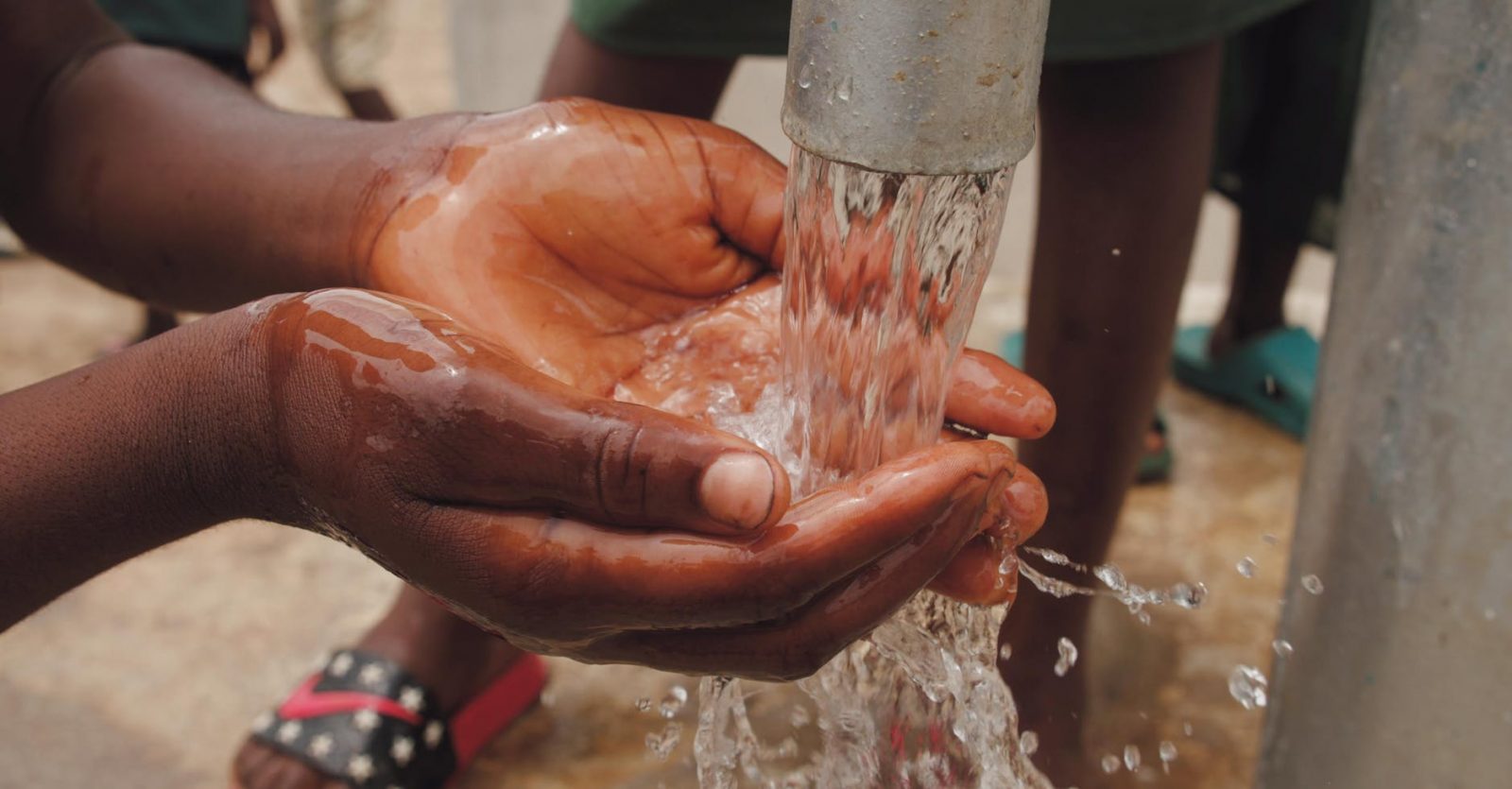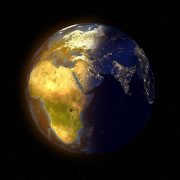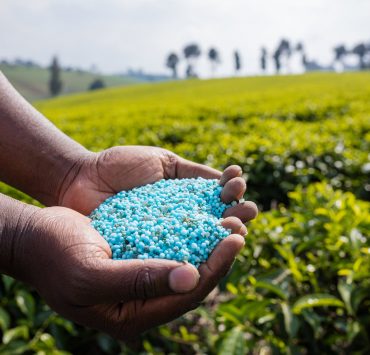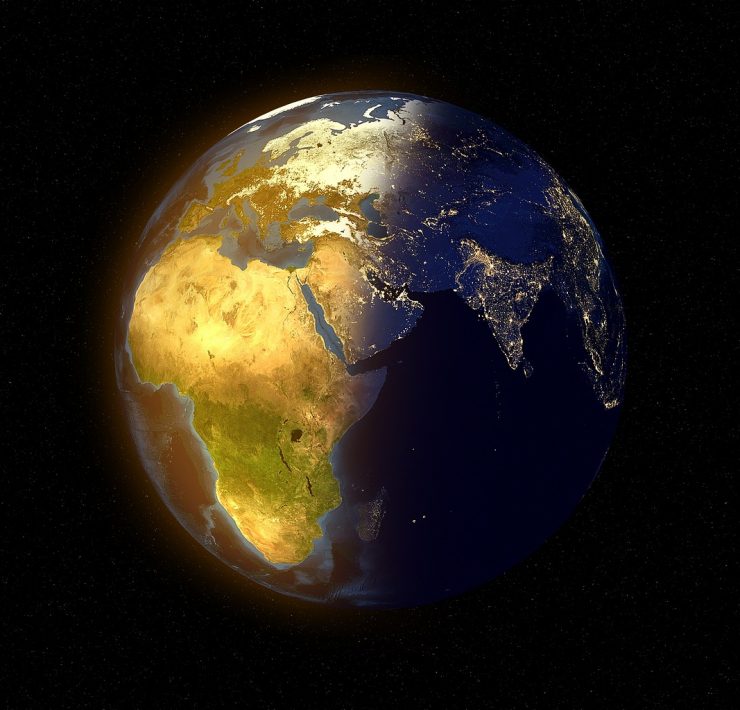Nigerian Water Minister Promotes Transaqua–A Water Project to Save Lake Chad & Transform Africa

Lawrence Freeman is a Political-Economic Analyst for Africa, who has…

The drying up of Lake Chad would be catastrophic for Africa. The disappearance of this body of water in the Sahel would not only affect the tens of millions of Africans living on and around the lake and the nations of the Lake Chad Basin, but the entirety of the continent. The lake has shrunk over the last six decades to 90% of its original area of 25,000 square kilometers.
Suleiman Adamu, Nigeria’s Minister of Water Resources, under President Mahammadu Buhari, has called for recharging Lake Chad, as reported in environewsnigeria.com, (excerpted below). Although Minister Adamu does not mention its name, the transformative water infrastructure project to save Lake Chad that he refers to is, Transaqua. It was first proposed by engineer Marcello Vichi in 1980.
Transaqua, was adopted as the preferred solution to restore Lake Chad to its earlier size, at the International Conference to Save Lake Chad, held in Abuja, Nigeria from February 26-28, 2018. I was a prominent speaker at this conference. Read: The Time is Now For TRANSAQUA-to Save Lake Chad and Transform Africa,
Essentially, Dr. Vichi’s proposal called for constructing a 2,400 kilometer canal from the southeast section of the Democratic Republic of the Congo that would flow by gravity northwest to the Central African Republic. There, this navigable canal would connect to the Chari River, the primary contributor of water to Lake Chad. By utilizing a small percentage of water from the Congo River, this canal would conduit an up to one hundred billion cubic meters of water to refurbish Lake Chad. Through human intervention, water is being transferred from the moist Congo River Basin to the arid Lake Chad Basin.
Dr. Vichi recently wrote:
“TRANSAQUA is the only project capable of transforming about 25% of the surface of the African continent by producing agricultural and livestock products sufficient for the domestic market and for export; to stop the advance of the Sahara and save Lake Chad; to produce large production of hydroelectric energy in the heart of Africa with the possibility of industrialization of economic activities; to create a river and road axis of about 2400 km capable of activating a collateral road network for the development of all types of activities; and much more.
“It has been calculated that the TRANSAQUA project could produce in the heart of the African continent, around 30 billion kw/h per year using only 6-8% of the water of the Congo River subtracted from dispersion in the ocean.”
For more information on the transformative impact of Transaqua for Africa, read: Save Lake Chad With Transaqua: Franklin Roosevelt and Kwame Nkrumah Would Concur

U.S. Rebuffs Transaqua
Despite all the ballyhoo and so called concern on the effects of climate change on the African continent, the U.S. has done nothing to address the crippling conditions of poverty and lack of energy. United Nations Envoy, Linda Thomas-Greenfield, typifies the Biden Administration’s deeply flawed outlook when it comes to assisting Africa. Speaking at the UN Security Council on October 12, Ambassador Greenfield laments the effects of hotter dryer weather in Africa including on Lake Chad, “…we’ve watched Lake Chad as it diminishes in size. And we all wonder when Lake Chad will be no more.”
What rubbish. There is no reason for Lake Chad to disappear. There is a solution. It is called Transaqua. The U.S. has shown zero interest in saving Lake Chad. For decades, I have been the lone American voice advocating vociferously for saving Lake Chad. As Minister Adamu discussed, all that is required to start the project is three million dollars for a feasibility study, which no U.S. government has ever considered. While tens of billions of dollars have been promised to fight climate change in Africa, a tiny fraction of those funds could be spent to initiate Transaqua, a project that can save the lake and transform almost a third of the continent of Africa. Why hasn’t the U.S. allocated this small amount of money for a feasibility study of Transaqua?
The U.S. rejects Transaqua because it rejects development. The U.S. refuses to build infrastructure in Africa, the single most crucial element to address Africa’s massive energy and transportation needs, and create economic growth. Since the death of President John Kennedy, the concept of development has vanished from our thinking-from our culture. For over half a century, American elected officials have failed to demonstrate even a modicum of understanding of how to assist African nations to develop into industrialized economies.

The author advocating for Transaqua at the United Nations, August 2019
Excerpts from remarks by Minister Adamu follow:
Nigeria’s Minister of Water Resources, Suleiman Adamu, has called for more funding and understanding from international partners to save the fast drying Lake Chad from disappearing totally.
Part of the plan to revive the Lake Chad includes inter-basin water transfer from the River Congo to the Chad Basin.
“Although we don’t need $50 billion for Lake Chad but, at least with that kind of fund, the inter-basin water transfer has another angle that you can create a roadway and canals for river navigation.
“You can create many dams and hydropower schemes that will benefit countries like the Central African Republic.
“We can even have a highway from Lagos to Nairobi to Mombasa, from West Coast to the East Coast. It’s all part of the grand plan. But these things, you have to take those systematically.
“So, now we’re waiting to sign the MoU with the AfDB, So, once we’re able to sign that, we hope that we can get some funding, about 2 million to 3 million dollars to do the feasibility study,” Adamu said.
“We had a successful conference in February 2018. In that conference, we achieved two things.
“Number one, we achieved consensus. There is an international consensus, not only an African consensus, an international consensus that the Lake Chad has to be saved.
“Secondly, the consensus we had among us African countries was that the inter-basin water transfer should be given a shot at as the best way for the long term sustainability of the lake,” Adamu said.
“I’m worried that in the next 50 years we may wake up one day and there’s no Lake Chad,” the minister warned.
Read the entire article: Nigerian Minister Calls for International Funding to Revive Lake Chad
What's Your Reaction?
Lawrence Freeman is a Political-Economic Analyst for Africa, who has been involved in economic development policies for Africa for over 30 years. He is the creator of the blog: lawrencefreemanafricaandtheworld.com. Mr. Freeman’s stated personal mission is; to eliminate poverty and hunger in Africa by applying the scientific economic principles of Alexander Hamilton













